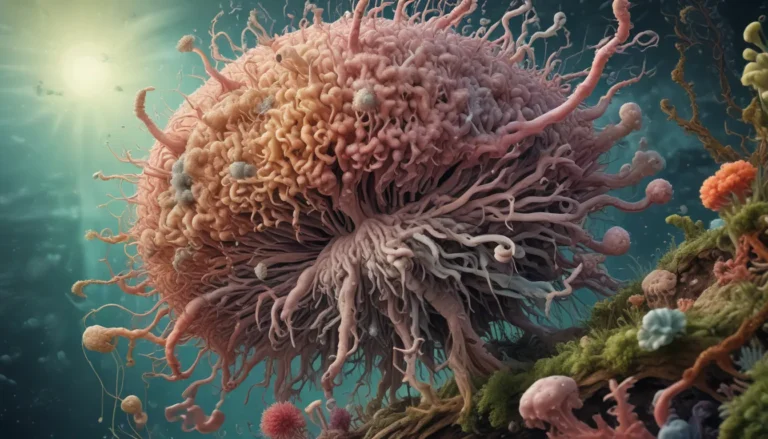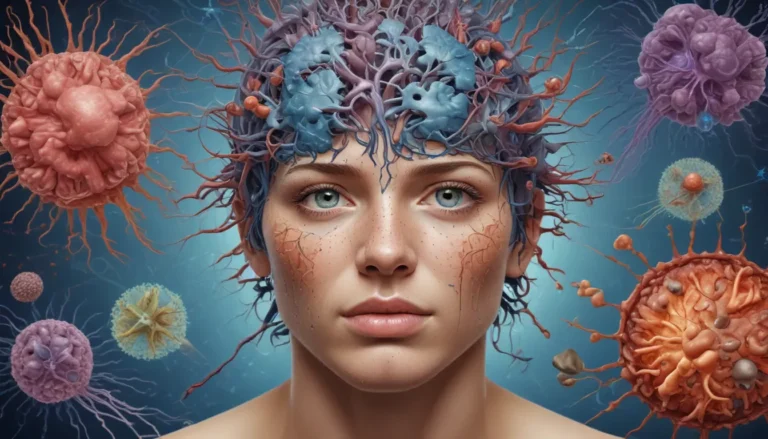A Note About Images: The images used in our articles are for illustration purposes only and may not exactly match the content. They are meant to engage readers, but the text should be relied upon for accurate information.
Are you intrigued by the marvels of the human brain and how it functions? If so, dive into the captivating world of neurotransmitters, the tiny chemical messengers that orchestrate communication within our nervous system. These microscopic substances play a pivotal role in regulating our moods, sleep patterns, cognitive functions, and even bodily processes like heart rate and digestion. Understanding the intricacies of neurotransmitters can unravel the mysteries of human biology, offering profound insights into our behavior and well-being.
Exploring the Realm of Neurotransmitters: Key Takeaways
- Neurotransmitters govern our moods, sleep, and physiological functions, acting as diligent messengers that maintain harmony within our bodies.
- Understanding neurotransmitter function can pave the way for targeted therapies for mental health and neurological disorders, opening doors to improved health outcomes.
The Diverse Functions of Neurotransmitters
Neurotransmitters are not just involved in regulating our moods and emotions; they also oversee a plethora of bodily functions ranging from heartbeat regulation to digestion. These chemical messengers ensure that our body operates harmoniously, with each neurotransmitter playing a unique role in maintaining overall well-being.
The Complexity of Neurotransmitters
While popular neurotransmitters like dopamine, serotonin, and acetylcholine often take the spotlight, it may come as a surprise that there are over 100 identified neurotransmitters in the human body. These chemical entities operate in a delicate balance of excitatory and inhibitory effects, crucial for sustaining proper brain function.
Unveiling the Role of Key Neurotransmitters
- Dopamine: Known for its involvement in the brain’s reward system, dopamine influences motivation, reinforcement, and pathways related to addiction.
- Serotonin: Dubbed the “feel-good” neurotransmitter, serotonin regulates mood, sleep-wake cycles, and appetite.
- Acetylcholine: Essential for learning and memory processes, acetylcholine also plays a role in muscle contractions.
- GABA: As the primary inhibitory neurotransmitter, GABA calms and regulates brain activity, counteracting the effects of excitatory neurotransmitters.
- Glutamate: Serving as the primary excitatory neurotransmitter, glutamate is critical for learning, memory, and neuronal development.
- Endorphins: Natural painkillers, endorphins alleviate pain and induce feelings of pleasure and well-being.
- Noradrenaline: Promoting alertness and arousal, noradrenaline aids in stress response and maintaining focus.
Impact of Neurotransmitter Imbalances
Disruptions in neurotransmitter levels can lead to various mental health conditions such as depression, anxiety, and schizophrenia. Medications targeting specific neurotransmitter systems, like SSRIs and dopamine agonists, aim to restore balance and alleviate symptoms of these disorders. Lifestyle factors such as diet, exercise, and stress levels can also influence neurotransmitter production and function in the brain, underscoring the importance of holistic well-being.
Neurotransmitters and Sleep Patterns
Imbalances in neurotransmitters like serotonin and dopamine can disrupt sleep patterns, contributing to conditions such as insomnia and sleep disorders. The intricate connection between neurotransmitters and sleep underscores the need for maintaining a healthy balance to promote restful and rejuvenating sleep.
The Gut-Brain Connection and Neurotransmitters
Neurotransmitters play a pivotal role in the intricate communication between the gut and the brain. Often referred to as the “second brain,” the gut’s nervous system relies on neurotransmitters to convey messages to the brain, highlighting the profound impact of these chemical messengers beyond the confines of the brain.
External Influences on Neurotransmitters
External substances like alcohol, drugs, and medications can interfere with neurotransmitter synthesis, release, or reuptake, potentially altering brain function. Understanding how these substances affect neurotransmitter activity is essential for safeguarding optimal brain health.
Advancements in Neuroscience Through Neurotransmitter Research
Studying neurotransmitters has advanced our understanding of the complexities of the nervous system, paving the way for groundbreaking discoveries in neuroscience. By unraveling the intricate mechanisms of neurotransmitters, researchers can develop targeted therapies to address various neurological and psychiatric disorders, offering hope for improved treatment outcomes.
Unlocking the Potential of Neurotransmitters
Neurotransmitters hold the key to unlocking a deeper understanding of our brain’s functions and intricacies. By exploring the fascinating world of neurotransmitters, we gain valuable insights into the mechanisms that shape our thoughts, emotions, and behaviors. This knowledge empowers us to strive for optimal mental and physical well-being, guided by a nuanced understanding of the profound impact of neurotransmitters on our daily lives.
Conclusion: Embracing the Complexity of Neurotransmitters
In conclusion, neurotransmitters are the unsung heroes of our nervous system, orchestrating communication between neurons and governing essential functions that shape our experiences. Whether you’re captivated by the science of neuroscience or simply intrigued by the wonders of the human brain, delving into the realm of neurotransmitters offers a gateway to unraveling the complexities of our cognitive and emotional processes. Embrace the intricacy of neurotransmitters, and embark on a journey of discovery that promises to enrich your understanding of yourself and the world around you.
Neurotransmitters FAQs
-
What are neurotransmitters?
Neurotransmitters are chemical messengers that facilitate communication between nerve cells in the brain and throughout the body. -
How do neurotransmitters work?
Neurotransmitters are released from the sending neuron into the synapse, where they bind to receptors on the receiving neuron, transmitting signals and triggering responses. -
How many neurotransmitters exist?
While over 100 neurotransmitters have been identified, notable ones include serotonin, dopamine, acetylcholine, and glutamate. -
What roles do neurotransmitters play in the body?
Neurotransmitters play vital roles in regulating mood, memory, sleep, appetite, pain sensation, and various physiological and cognitive functions. -
Can imbalances in neurotransmitters lead to mental health disorders?
Imbalances in neurotransmitter levels have been associated with mental health disorders like depression, anxiety, and schizophrenia. -
Can external factors influence neurotransmitters?
Factors such as stress, diet, drug use, and medications can impact neurotransmitter levels and functioning. -
Is it possible to naturally increase neurotransmitter levels?
Leading a healthy lifestyle encompassing regular exercise, proper nutrition, and stress management can support optimal neurotransmitter levels. -
Do medications affect neurotransmitters?
Certain medications known as psychoactive drugs can directly or indirectly influence neurotransmitter activity, ameliorating symptoms of mental health disorders. -
Can neurotransmitter levels be measured?
While direct tests for neurotransmitter levels in the brain are lacking, indirect tests like urine or blood tests can offer insights into potential imbalances. -
Do neurotransmitters regenerate?
Neurons have the capacity to synthesize and release neurotransmitters, enabling them to replenish their supply as needed.
Embark on a journey of discovery, unraveling the complex world of neurotransmitters and their profound impact on our mental and physical well-being. As you delve deeper into the intricate mechanisms of these essential brain chemicals, you’ll gain a newfound appreciation for the intricacies of the human brain and the endless possibilities for optimizing neurological health.






